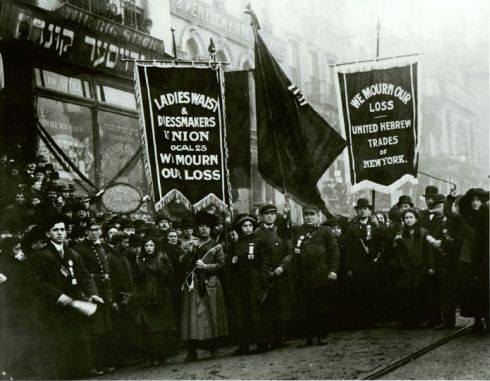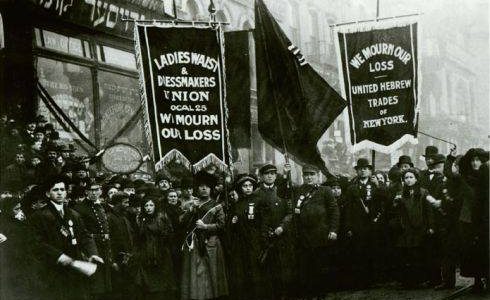The International Socialist Women’s Movement (1907-1917)
Location: People’s History Museum, Manchester
Date: October 17-18 2024
Organised with the generous support of the Leverhulme Foundation
The Women’s International Council of Socialist and Labour Organisations, also known as the International Socialist Women’s Movement, was established in Stuttgart on August 17 1907. The conference brought together 58 delegates from 15 different countries and the three official conference languages were English, French and German.
The ISWM greatly contributed to the history of both socialism and women’s emancipation. It organised thousands upon thousands of female and male activists from around the world to develop policies, share experiences and coordinate the struggle for the emancipation of working women. This was primarily to be achieved by organising these women within trade unions and by integrating them into the mass social-democratic parties of the time so that they could participate in all aspects of the class struggle. Central to the ISWM was the struggle for universal suffrage. In the words of one of its founders, Clara Zetkin, the vote presented the means with which ‘the proletariat could take over parliament by defeating the bourgeois parties in the electoral battle.’ In 1910, the ISWM launched an annual demonstration – International Working Women’s Day – to fight for female suffrage on an international scale.
As with the Socialist ‘Second’ International to which the ISWM was affiliated, the powerful German section was dominant within the movement. Not only did the idea of establishing the ISWM come from the Mannheim Conference of German Social-Democratic Women in 1906, but the International Secretariat of the ISWM was based in Stuttgart in the offices of the German Marxist bi-monthly periodical, Die Gleichheit. Zeitschrift für die Interessen der Arbeiterinnen [Equality. Newspaper for the Interests of Women Workers]. Moreover, Zetkin was President of the ISWM and Die Gleichheit was its official publication, which published German translations of news items, reports and updates from the ISWM’s various international sections. This practice became particularly significant during World War I, when the ISWM co-ordinated the anti-war opposition and organized the first meeting of anti-war socialists from both sides of the conflict in Berne in March 1915.
Despite the enormous impact of this mass movement on the politics of the twentieth century in its pioneering struggle for many of the rights and freedoms that we often take for granted today, it is only recently that scholars are beginning to engage seriously with this remarkable chapter of women’s history by analysing the congress proceedings, correspondence, newspaper articles and agitational materials produced by some of its leading actors. This event is conceived as an international working conference to exchange ideas and information and to facilitate research and publication initiatives on the ISWM. It is hoped that participants will gather informally online in the run-up to the event and that the individual papers will be published as a special journal issue or stand-alone publication. Conference proceedings will be conducted in English. Some funding is available for travel and accommodation and we will endeavour to support young scholars and early career researchers as much as possible.
Contributions on the following issues and themes are particularly welcome:
- How relations between male and female socialists within the national sections of the ISWM were addressed and discussed
- The Social-Democratic women’s newspapers and agitational materials in different countries
- Connections and tensions between the leaderships of the national sections of the movement
- How the conflict between the radical and ‘revisionist’ wings within social democracy manifested itself within the ISWM
- Accounts of grassroots organisation and agitation
- The relationship between the socialist women’s movement and the bourgeois feminist movements within the various national affiliates
- The significance of formal and informal interpersonal networks within the international movement
- The role of the ISWM during World War I and the controversy within its left wing over the slogan of ‘peace’
The deadline for submissions is January 10 2024. Informal inquiries should be addressed to Dr. Ben Lewis, Leverhulme Early Career Fellow at the University of Leeds b.j.lewis@leeds.ac.uk

